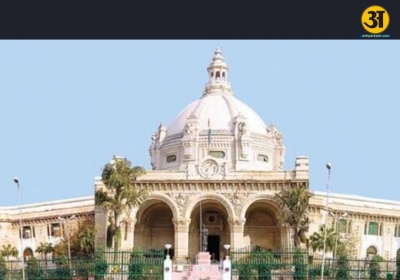
There are several bright spots in India's economy: R Rajan
Several bright spots with a number of dark spots in India's economy: R Rajan
Raghuram Rajan, the former governor of the Reserve Bank of India, said on Sunday that the Indian economy has "some bright spots and a number of very dark stains," and that the government should "carefully" manage its expenditure to avoid massive deficits.
The famous economist went on to say that the government needed to do more to prevent the economy from recovering in a K-shaped pattern as a result of the COVID-19 outbreak.
A K-shaped recovery typically reflects a situation in which huge capital firms, as well as technology, recover far faster than small businesses and industries that have been significantly impacted by the epidemic.
Rajan, a professor at the University of Chicago Booth School of Business, told PTI that his biggest concern about the Indian economy is "the scarring to the middle class, the small and medium sector, and our children's minds, all of which will come into play after an initial rebound due to pent-up demand."
"Weak consumption growth, especially for mass consumer items, is one sign of all of this," he noted. Rajan noted that the economy has some bright spots and a number of very dark stains, as it does every year.
"The strength of various segments of the financial industry, the health of large enterprises, the roaring business the IT and IT-enabled industries are doing, including the appearance of unicorns in a number of fields, and the health of large firms," he said.
The degree of unemployment and poor purchasing power, particularly among the lower middle class, the financial difficulties small and medium-sized businesses are experiencing, "including the very tepid credit growth, and the awful status of our education," are "black stains."
Omicron is a setback, both physically and economically, according to Rajan, but he cautioned the administration about the likelihood of a K-shaped economic rebound.
"We must do more to avoid a K-shaped rebound and a potential reduction in our medium-term economic potential," he said.
In the current fiscal year, which ends on March 31, the country's GDP is predicted to expand by more than 9%. The economy, which was severely harmed by the pandemic, shrank by 7.3 percent in the previous fiscal year.
Rajan stated ahead of the Union Budget that budgets are supposed to be visionary documents, and he would want to see a five- or ten-year vision for India, as well as a plan for the types of institutions and frameworks the government wishes to establish.
When asked if the government should pursue fiscal consolidation or maintain stimulus measures, Rajan noted that India's fiscal condition was precarious even before the pandemic, which is why the finance minister is unable to spend freely now.
"We must target the spending carefully so that we do not run huge deficits," he said, adding that while the government must spend where necessary to alleviate the pain in the most troubled areas of the economy at this time, "we must spend where necessary to alleviate the pain in the most troubled areas of the economy."
On February 1, Finance Minister Nirmala Sitharaman will propose the Union Budget 2022-23 to Parliament.
In response to rising inflationary tendencies, Rajan stated that inflation is a concern in any country, and India is no exception.
He believes that announcing a credible aim for the country's consolidated debt over the next five years, as well as the formation of an independent fiscal council to comment on the budget's quality, would be very beneficial initiatives.
"The debt markets may be able to accept a greater temporary deficit if these steps are perceived as credible," he said, adding that to persuade markets that "we would be responsible," "we should improve the institutional support for future fiscal consolidation."
Rajan also stated that asset sales, such as sections of government firms and surplus government land, are one option to increase budgetary resources.
"We need to think strategically about what we can sell and how we can use those sales to boost the economy's performance... "However, once we decide to sell, we must act quickly, which we have not done thus far," he advised.
Rajan stated that he would want to see greater tariff reduction, far fewer tariff rises, and far less sops or subsidies to certain businesses in the 2019 budget. "In particular, an independent examination of the Production Linked Incentive schemes would be greatly appreciated."





